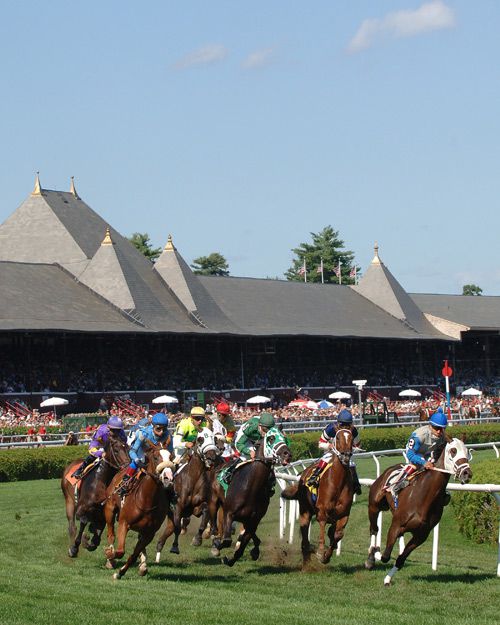There is no doubt in my mind that the vast majority of racing officials and executives care about the sport. When they do things that may seem to hurt the sport, I am just as certain that wasn’t their intention. That still doesn’t diminish the criticism that is heaped on the decision-makers when they obviously screw-up.
There isn’t a delicate way to say it. NYRA deserves some culpability for accepting entries for horses that were ineligible under the new emergency rule that requires entrants to have at least 14 days between starts, and then scratched those horses on race day. On Sunday this resulted in two three-horse fields and a four horse field. In what can only be described as a higher power showing an off-beat sense of righteous indignation, a major snowstorm is scheduled to hit the New York area starting Monday, creating a high probability that racing will be cancelled Thursday. This means the 11 horses for which entries were accepted even though they had a race within the last two weeks will technically not have to be declared.
Fortunately for NYRA there are convenient scofflaws available – the trainers. Based on racing rules, it is the trainer’s responsibility to only enter his horse in races for which the horse is eligible. The stewards rulings are not posted yet, but it will be interesting to see if they fine the trainers who entered those horses on Sunday.
What needs to be discussed is how this situation could have been avoided. The trainers were obviously not happy about the 14 day rule. Their comments were somewhere between the compromising “how about a few days less” and the snarky “they’ve obviously never trained a horse.”
The question is, how much discussion could have gone on to reach an acceptable consensus if the trainers think it is on the poorly conceived side of the line?
Managing people or an organization is not easy, and believe me I know that from personal experience. But it is a lot harder when you believe you know what is best for everyone without giving them a chance to have input into the decision. If you’re a boss you are paid to make decisions. The buck stops here and all of that. But if the decisions you make are seen as “stupid” by everyone except you, well, the chances are the people in the “it’s stupid” camp have a point worth listening to. And even if in the end you are right, you still need everyone’s help and support to get the decision implemented in the right way.
Horses are dying at what seems to be an alarming rate on track at Aqueduct. NYRA understandably wanted to take action but there are two parts to any plan: the conception and the implementation. If either are not good, the plan fails. Not all horses need two weeks between starts, but I suspect it could be difficult and expensive to do an assessment on the dozens of horses entered within the 14-day window. It was certainly easier just to make a blanket rule, but perhaps not the only option. The right thing for NYRA to do is to make an assessment of how the on-track breakdowns can be addressed most effectively, and if that means modifying a decision they had already made, that is the right thing to do.
Because the alternative is another embarrassment like the one that occurred Sunday, and that is simply not acceptable.
